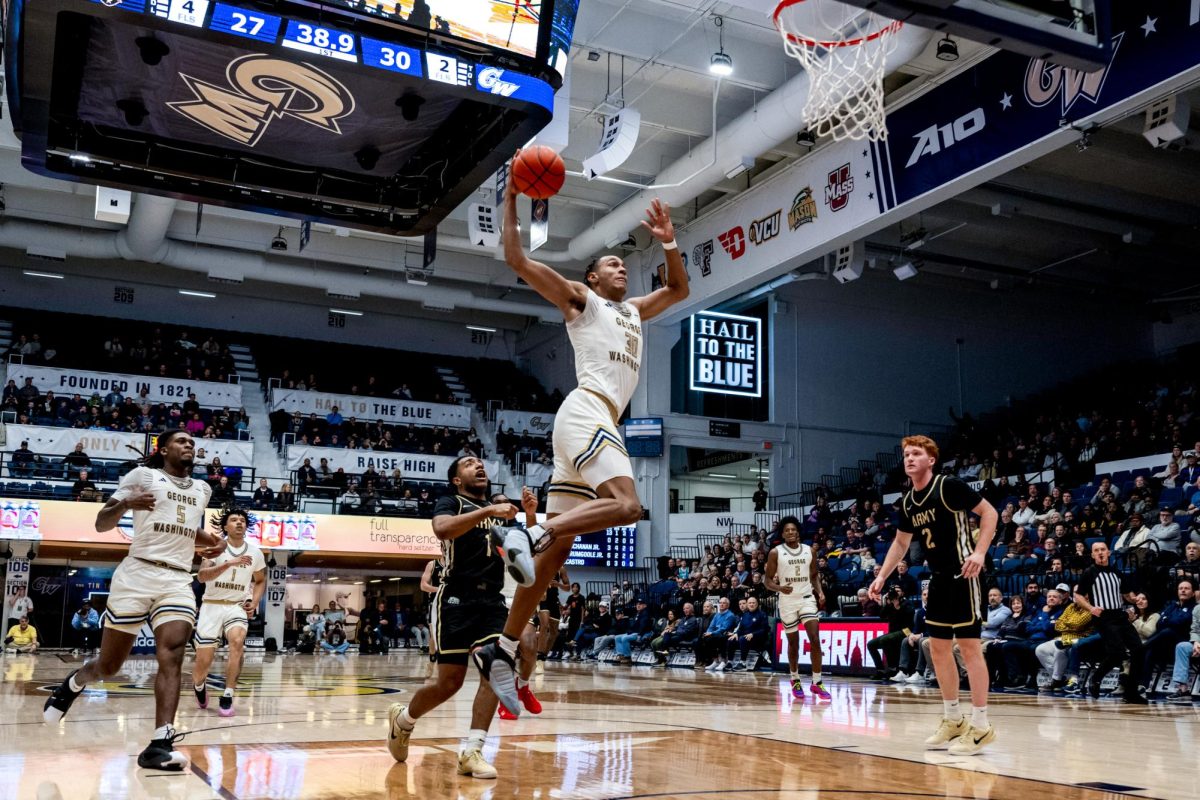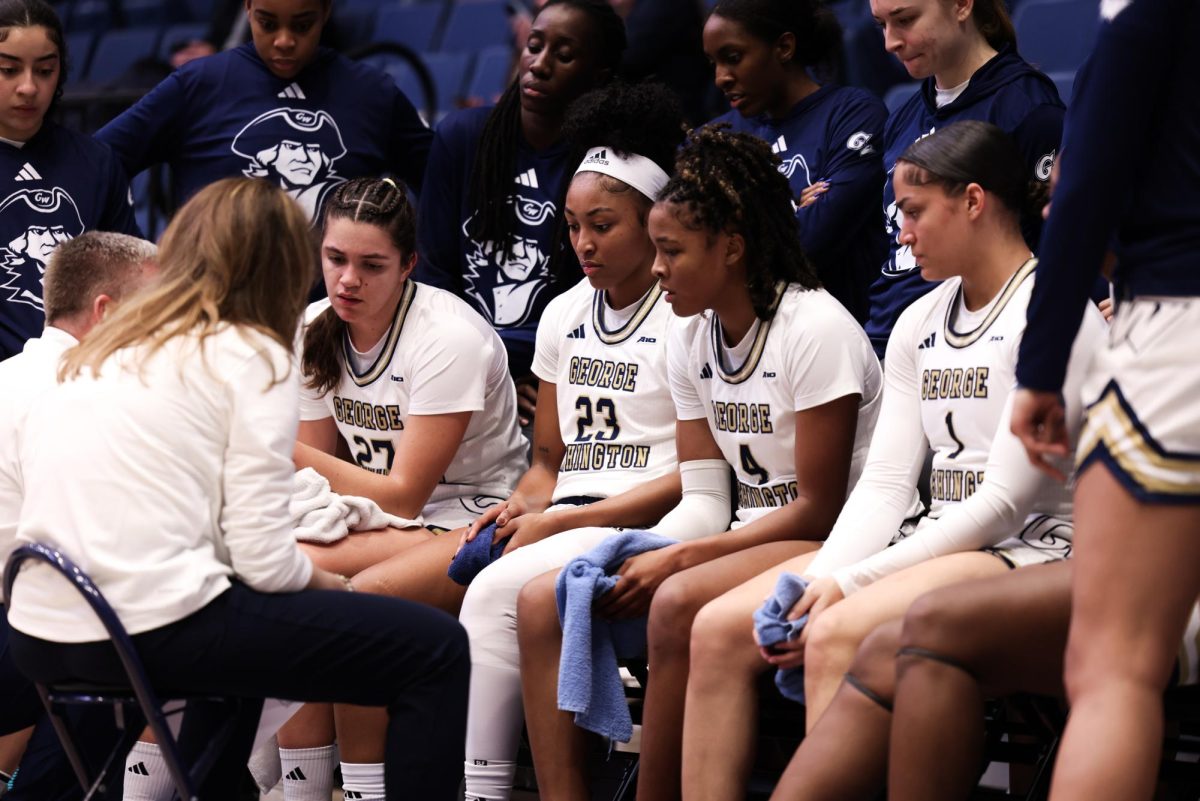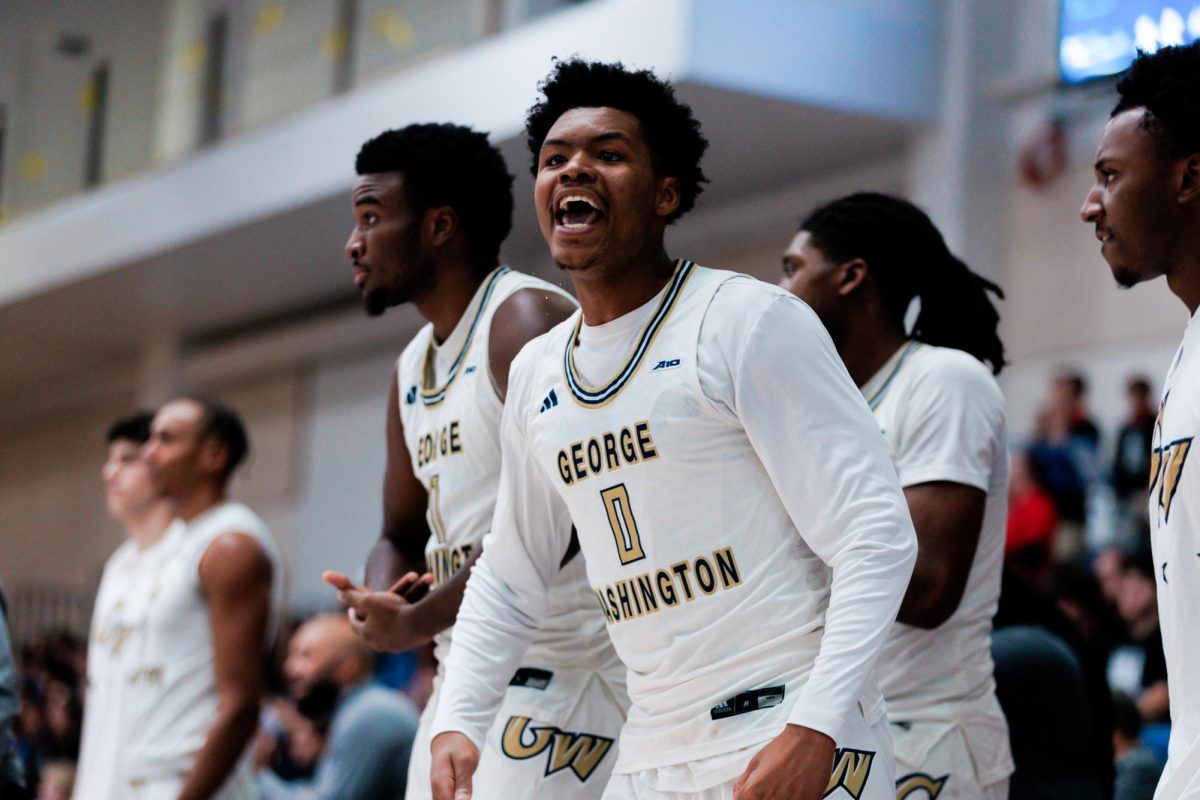“Strike three called, he stood there like a house by the side of the road.” It was vintage Ernie Harwell Thursday afternoon when the Hall of Fame sports broadcaster spoke in the Media and Public Affairs building.
Vice President of Communications Mike Freedman, a 30-year broadcast veteran and former general manager of the CBS Radio Network, interviewed Harwell, who painted a picture of baseball’s past.
The program included sound clips of several classic broadcasts, including Russ Hodges’ call of Bobby Thomson’s “shot heard round the world,” the game-winning homerun that won the 1951 National League pennant for the Giants. Harwell emphasized the impact announcers have on the game and its fans.
Harwell recounted memories dating back from Babe Ruth to the summer of 2002, his 40th and final year with the Detroit Tigers, to a crowd of about 200 people including about 70 GW students. The event was the annual Stephen Holly Bronze Memorial Lecture sponsored by GW/Smithsonian Associates.
The larger-than-life broadcaster drew the crowd in with a story from his childhood about Climax Clenton, a ballplayer for the 1926 minor league Atlanta Crackers. Harwell recounted that Clenton “had these false teeth” and when he went in to pinch run, “he would put his teeth in his back pocket.” Once, “he slid into third and bit his own ass,” Harwell recalled.
Harwell’s later stories ranged from becoming the only sports announcer ever to be traded for a player to why he still hates the Yankees.
Giving insight into past baseball legends from his personal experiences, Harwell called Ty Cobb “talkative, generous and humorous” and labeled Babe Ruth “the biggest star this game has ever seen,” the man who revolutionized the power game. He also recounted pivotal baseball broadcasts, including Jackie Robinson’s inaugural season and Willie Mays’ rookie season.
Harwell took questions from the audience, adding a fun twist to the program. One question led him to delve into his singing career, and he admitted, “I always said, I had more no-hitters in song writing than Nolan Ryan did in baseball.”
Harwell said the game has not changed much over the years on the field, but off-field distractions focused around teams’ and players’ finances have negatively affected the game..
Harwell was well received by both GW students and others in attendance.
“As a big baseball fan who’s been hearing these stories from your father and grandfather, I thought it was great,” freshman Alison Dorfman said.
Sophomore Jonathan LaBuzz agreed.
“This is what baseball’s all about – Harry Carry, Jack Buck and Ernie Harwell,” he said. “It epitomizes baseball in America.”






